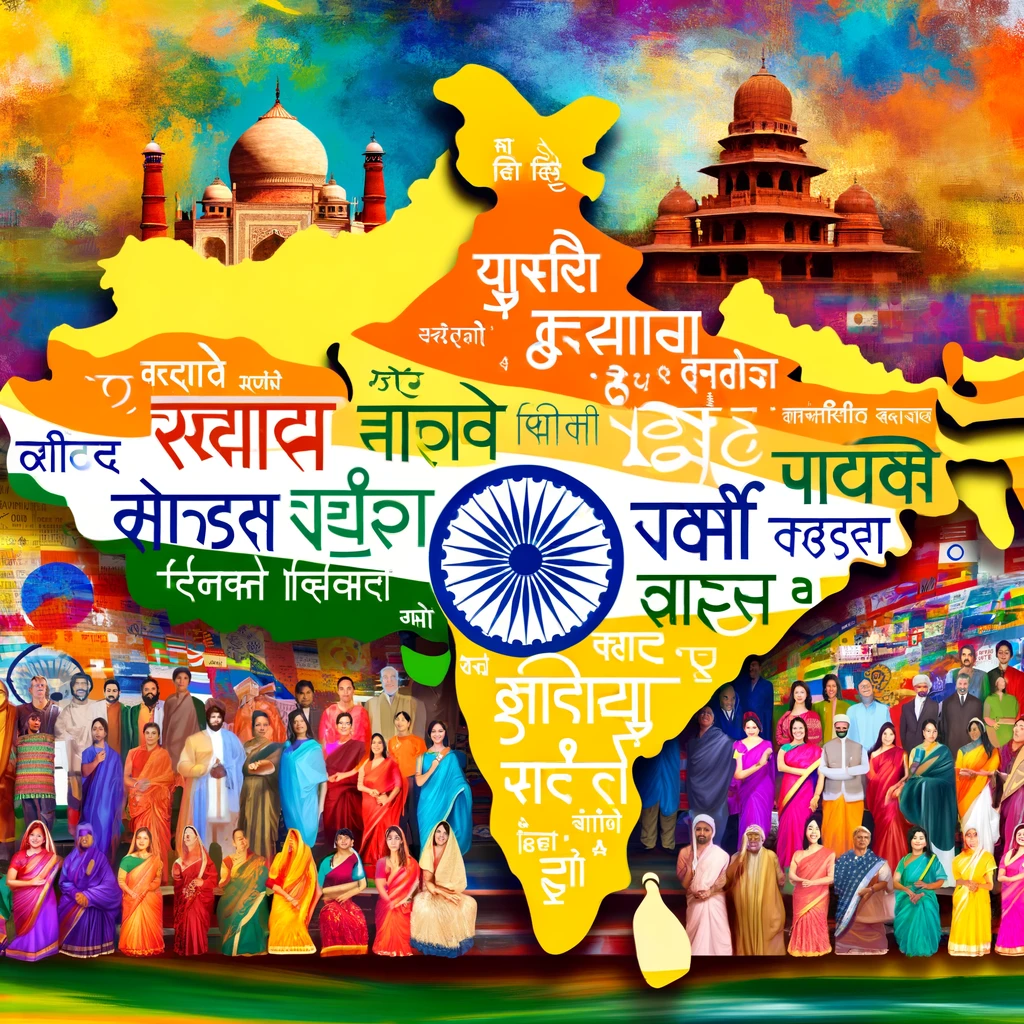In the tapestry of global cultures, languages serve as the most vibrant threads, connecting us to each other’s heritage, knowledge, and perspectives. India, with its 22 official languages, stands as a testament to linguistic diversity, each language a bearer of rich history and cultural identity. However, the recent educational reforms and policy shifts, particularly the implementation of the New Education Policy (NEP) 2020 and the subsequent National Curriculum Framework (NCF) announcements, have ignited a crucial debate on the balance between nurturing local languages and embracing foreign languages. This blog delves into the complexities of this issue, drawing lessons from international examples and advocating for a more inclusive approach to language education in India.
The Linguistic Diversity Challenge – The complication !
India’s linguistic diversity is unparalleled, yet the push towards a monolingual or limited language policy in education overlooks the practical realities of our interconnected world. The example of Switzerland, a nation without its own unique language but thriving on German, French, and Italian, showcases that linguistic diversity, when harnessed correctly, can be a source of strength rather than division. Swiss education and professional spheres flourish in these languages, allowing for higher education and research opportunities that are globally recognized.
Contrastingly, in India, while one may celebrate the diversity of languages, the infrastructure for higher education and professional growth in these regional languages remains underdeveloped compared to English. This gap not only limits academic and professional opportunities for many but also risks sidelining the rich intellectual contributions of Indian languages.
The Power of Multilingualism – The opportunity !
Indians grow up in a multilingual environment, a unique advantage in the global job market. The success story of India’s call centers, primarily due to its English-speaking workforce, can be replicated across other languages. By leveraging this innate linguistic agility, India can position itself as a global hub for multilingual professionals, catering to the growing demand for skills in languages like French, German, Chinese, and Japanese.
The Socio-Economic Divide – You got to be rich to learn a foreign language in India !
Mandating two regional languages without clear pathways for the inclusion of foreign languages risks widening the socio-economic divide. Affluent families can afford international curricula like IB, IGCSE etc that include a variety of foreign languages, positioning their children for global opportunities. In contrast, students from middle and lower socio-economic backgrounds might find themselves at a disadvantage, restricted by a curriculum that does not equip them for the global stage. This division not only undermines social equity by creating further gaps between rich & poor but also contradicts the aspirational vision of an inclusive, educated society.
A Crucial Balance: Local Versus Foreign Languages – Sowing the seed of doubt !
The NEP 2020 mentioned on the need for foreign languages in the curriculum, recognizing their value in a globalized world. However, the recent developments around the NCF have not provided clear operational details on how foreign languages will be integrated, especially with the new emphasis on regional languages. This ambiguity has sown fears among stakeholders about the future place of foreign languages in education. The potential lack of clarity could stem from the challenging balance between promoting local languages and cultures and providing students with the skills needed to thrive globally. It is imperative that the government clarifies its stance, ensuring that politics do not overshadow the educational needs and aspirations of India’s youth.

A Call for Choice and Inclusion – Life is all about choices made !
The debate should not be about choosing between local and foreign languages but about offering choices that reflect the aspirations of India’s youth and the realities of the global landscape. The three-language formula, advocating for a regional language, English, and a foreign language, offers a balanced approach. It recognizes the importance of local languages while providing the tools needed for global engagement.
Moreover, the imposition of any language, whether Hindi or another, for political reasons, undermines the educational policy’s objective to foster unity through diversity. Education should be about opening doors, not closing them on the potential of India’s youth.
Joining Hands for Change – We can do it !
In 2014, in response to similar challenges, the Indian Council on Teaching of Foreign Languages was established as a not-for-profit organization aimed at advocating for the inclusion of foreign languages in the Indian education system. As we seek to revive this initiative, we call upon educators, teachers, and all stakeholders to join us in this voluntary mission. Together, we can advocate for a policy that embraces India’s linguistic diversity, offers students a choice, and prepares them for a global future. Join by Clicking here !!
Your Voice Matters – Time to wake up !
If you believe in the power of languages to bridge worlds, join us. Together, we can make a difference in shaping an educational landscape that values every language as a key to unlocking global opportunities. Let’s unite to advocate for a policy change that truly reflects the aspirations of every learner in India.
We are stronger together. Let’s make our voices heard at the highest levels and work towards an inclusive, multilingual educational policy. Join by Clicking here !!
To contribute to this cause and stay updated on our efforts, please fill out the attached form. Your support is crucial as we push for a future where every student has the freedom to choose their path in the rich linguistic tapestry of our world.
This call to action is not just for language educators but for anyone who believes in the transformative power of education and the importance of linguistic diversity. By coming together, we can advocate for a policy change that embraces all languages, ensuring that every child has the opportunity to learn, grow, and succeed in the global community.
Together, we can champion the cause of multilingualism and ensure that our education system reflects the diversity and dynamism of India and the world beyond.
Haru Mehra
President
Indus Council on Teaching of Foreign Languages
(A Non-Profit Organization Dedicated to Advancing and Safeguarding Foreign Language Education)
E-mail : Haru@frehindi.com




Go on let us know your valuable views & comments....